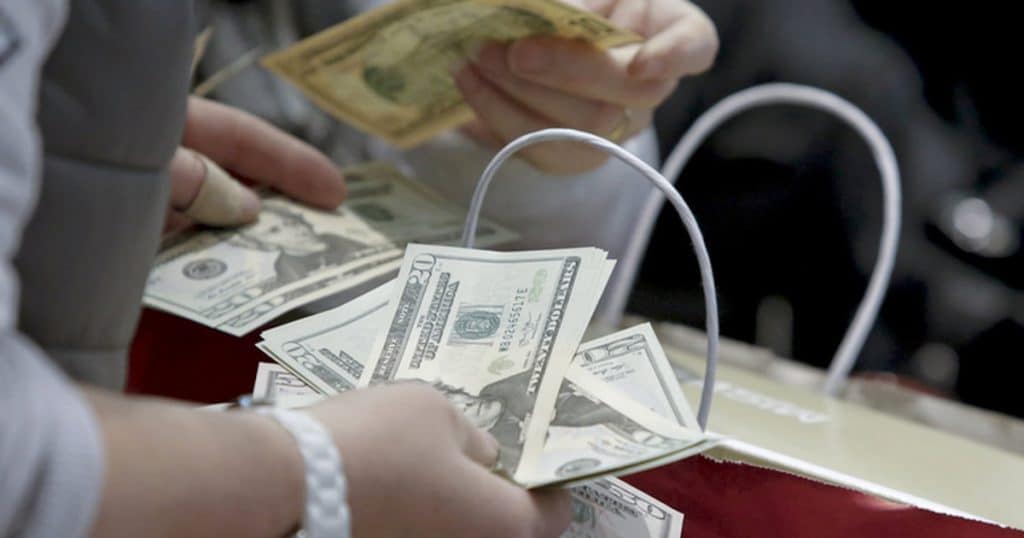

The Consumer Confidence Index declined to 124.1 in March, missing the forecast though still elevated. The consensus forecast was 133.0, ranging from a low of 130.0 to a high of 134.4.
“Consumer Confidence decreased in March after rebounding in February, with the Present Situation the main driver of this month’s decline,” said Lynn Franco, Senior Director of Economic Indicators at The Conference Board.
“Confidence has been somewhat volatile over the past few months, as consumers have had to weather volatility in the financial markets, a partial government shutdown and a very weak February jobs report.”
While unemployment declined to 3.8% and wages grew by 3% or greater for the seventh straight month, the headline jobs number missed by 160,000.
Unsurprisingly, consumers’ assessment of current conditions declined in March.
The percentage of consumers stating business conditions are “good” fell from 40.6% to 33.4%, while those saying business conditions are “bad” ticked up from 11.1% to 13.6%.
Consumers’ assessment of the labor market was less optimistic.
Those stating jobs are “plentiful” fell from 45.7% to 42.0%, while those claiming jobs are “hard to get” increased marginally from 11.7% to 13.7%.
“Despite these dynamics, consumers remain confident that the economy will continue expanding in the near term,” Franco added. “However, the overall trend in confidence has been softening since last summer, pointing to a moderation in economic growth.”
Consumers’ optimism about the short-term future moderated. The percentage of consumers expecting business conditions will improve over the next six months fell from 19.6% to 17.7%, while those expecting business conditions will worsen remained relatively flat, 9.3% versus 9.2% last month.
Consumers’ outlook for the labor market was less favorable.
The proportion expecting more jobs in the months ahead decreased from 19.0% to 16.4%, while those anticipating fewer jobs increased from 12.3% to 13.4%.
On short-term income prospects, the percentage of consumers expecting an improvement rose slightly, from 20.6% to 21.0%, while the proportion expecting a decline in income fell from 8.3% to 7.6%.
The Consumer Confidence Survey is based on a probability-design random sample, is conducted monthly for The Conference Board by Nielsen.
The cutoff date for the preliminary results was March 14.
The most damning journalistic sin committed by the media during the era of Russia collusion…
The first ecological study finds mask mandates were not effective at slowing the spread of…
On "What Are the Odds?" Monday, Robert Barnes and Rich Baris note how big tech…
On "What Are the Odds?" Monday, Robert Barnes and Rich Baris discuss why America First…
Personal income fell $1,516.6 billion (7.1%) in February, roughly the consensus forecast, while consumer spending…
Research finds those previously infected by or vaccinated against SARS-CoV-2 are not at risk of…
This website uses cookies.